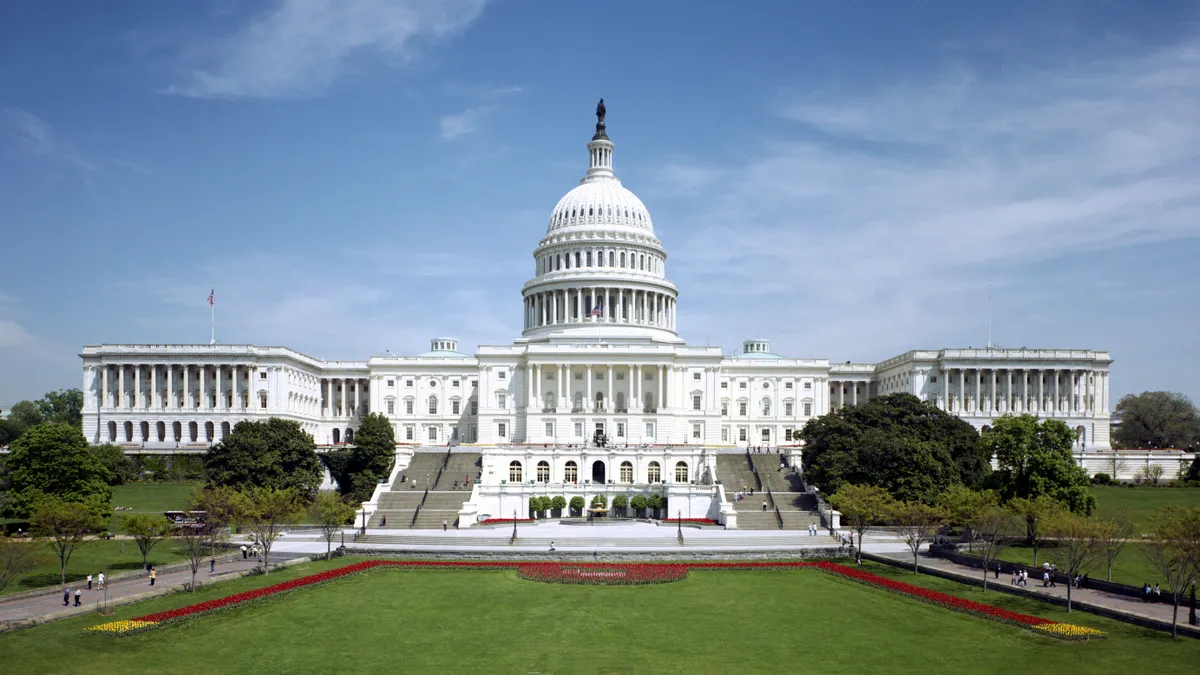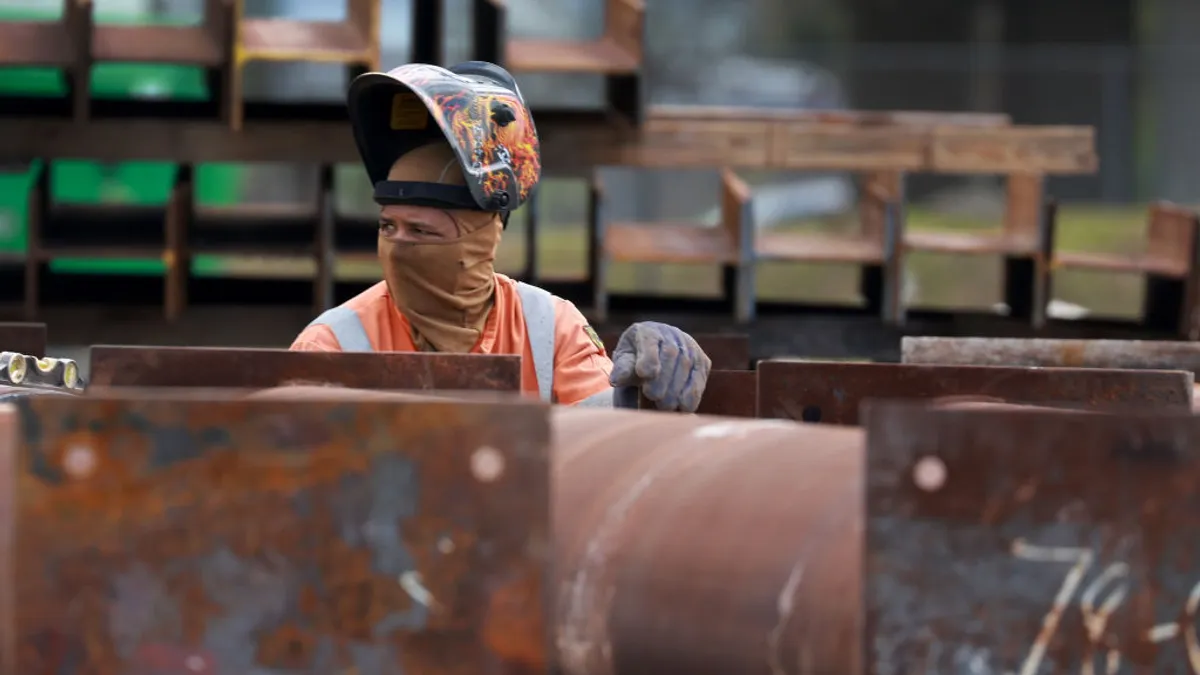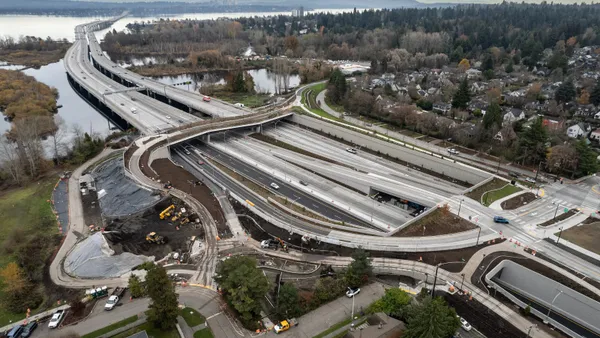Beyond the unexpected presidential victory by Republican presidential candidate Donald Trump, who largely trailed in the polls leading up to the election, and the less-surprising resurgence of conservatism in Congress, a host of state ballot issues were decided last night that stand to impact the business environment for construction nationwide.
Right-to-work results mixed
The role of unions was top of mind as voters in the right-to-work states of Alabama and Virginia sought to add language to their respective constitutions that would solidify a stance against denying individuals work opportunities based on union membership. Meanwhile, voters in South Dakota, also a right-to-work state, wrestled with whether to let businesses and nonprofits — including unions — charge membership fees. In South Dakota, unions can represent nonunion workers, and so under Measure 23, those workers could be required to pay for services rendered by the union, reducing the strength of the state’s right-to-work position.
- AL: Right to Work, Amendment 8 [APPROVED]
- VA: Right to Work Amendment [DEFEATED]
- SD: Right for Organizations to Charge Fees for Services [APPROVED]
States take on infrastructure spending
With Washington, DC, mired in gridlock, the states took on big-ticket infrastructure spending for themselves this election, seeking ways to balance the uptick in project scale with the need to better allocate and manage funding. Of the initiatives Construction Dive tracked, they were, for the most part, met with success.
A majority of voters in Illinois, Louisiana and New Jersey voted in favor of measures that would place more stringent guidelines on transportation and infrastructure spending. "You’re seeing this effort to say we have to prioritize and make sure that money raised for transportation or infrastructure goes toward it," Andrew Goldberg, managing director of government relations and outreach for the American Institute of Architects, told Construction Dive last week. In Illinois, for example, a new amendment implements "lockbox" measures to prevent the use of transportation funding for non-transportation projects, including infrastructure.
- IL: Transportation Taxes and Fees Lockbox Amendment [APPROVED]
- LA: Transportation Fund and Revenue Allocation, Amendment 5 [APPROVED]
- NJ: Dedication of All Gas Tax Revenue to Transportation, Public Question 2 [APPROVED]
Voters rule on big bonds
Big bonds were also on the ballots this week. Voters in Arkansas sought to put fewer limits on the value of state bonds for the private sector and institutions to fund infrastructure development. Similarly, Trump’s platform has called for offering the private sector an equity stake in revenue generating infrastructure projects to bolster development and close the $1 trillion infrastructure spending gap. Californians came out in support of a $9 billion bond issue to fund new construction and renovation to the state’s K-12 schools and community colleges with a focus on meeting new seismic, fire and health safety standards.
Based on preliminary results, California’s Proposition 53, which calls for voters to approve state-issued bonds over $2 billion, is poised for the defeat. It did not have the support of California Gov. Jerry Brown, whose two major infrastructure projects — a high-speed rail along the Pacific Coast and water tunnels for the central part of the state — are not popular with voters.
- AR: Removal of Cap on State-Issued Bonds, Issue 3 [APPROVED]
- CA: Proposition 51, Public School Facility Bonds [APPROVED]
- CA: Proposition 53, Voter Approval Requirement for Revenue Bonds above $2 Billion [DEFEATED – preliminary]
Carbon tax comes up short
What would have been the country’s first carbon tax was defeated by a modest margin in Washington. It would have assessed a carbon emissions tax on the sale or use of certain fossil fuels and electricity generated via fossil fuels. Opponents of the tax say it lacks sufficient bipartisan support, doesn’t help to fund clean energy alternatives and isn’t revenue neutral, although it claims to be.
Legal pot reaches new high
Marijuana legalization for medical and recreational uses made strides this election, with more than 80 million residents voting on relaxing pot laws in their state, according to Ballotpedia. Of the nine states with marijuana-related measures on their ballot, seven have approved them so far, including California, with Arizona defeating its Proposition 205 and Maine posting only preliminary results for its Question 1, favoring approval by less than one percentage point. Twenty-five states have previously ruled in favor of cannabis use.
The construction of new dispensaries and housing in pot-friendly markets has potential for the building industry, Construction Dive reported last month, though it’s uncertain how significant or prolonged that demand will be. Meanwhile, construction firms in states that have legalized the Schedule I drug for recreational use must consider its impact on their own drug-use policies.
- AZ: Marijuana Legalization, Proposition 205 [DEFEATED]
- CA: Proposition 64, California Marijuana Legalization [APPROVED]
- ME: Marijuana Legalization, Question 1 [APPROVED – preliminary]
- MA: Marijuana Legalization, Question 4 [APPROVED]
- NV: Marijuana Legalization, Question 2 [APPROVED]
Missouri holds off professional services tax
Voters in Missouri came out in support of an amendment that would prohibit the addition of sales or use taxes to services not requiring one as of Jan. 1, 2015 — which stood to impact professional services like architecture and engineering. The Home Builders Associations of Greater Kansas City and Greater St. Louis each supported the amendment. Hawaii, New Mexico, South Dakota, Delaware and Washington have professional services taxes, according to Thomson Reuters.
Now, we want to hear from you. Let us know what you think about the results, and what questions remain for your business.
If the survey below does not load, you can also take it here.














